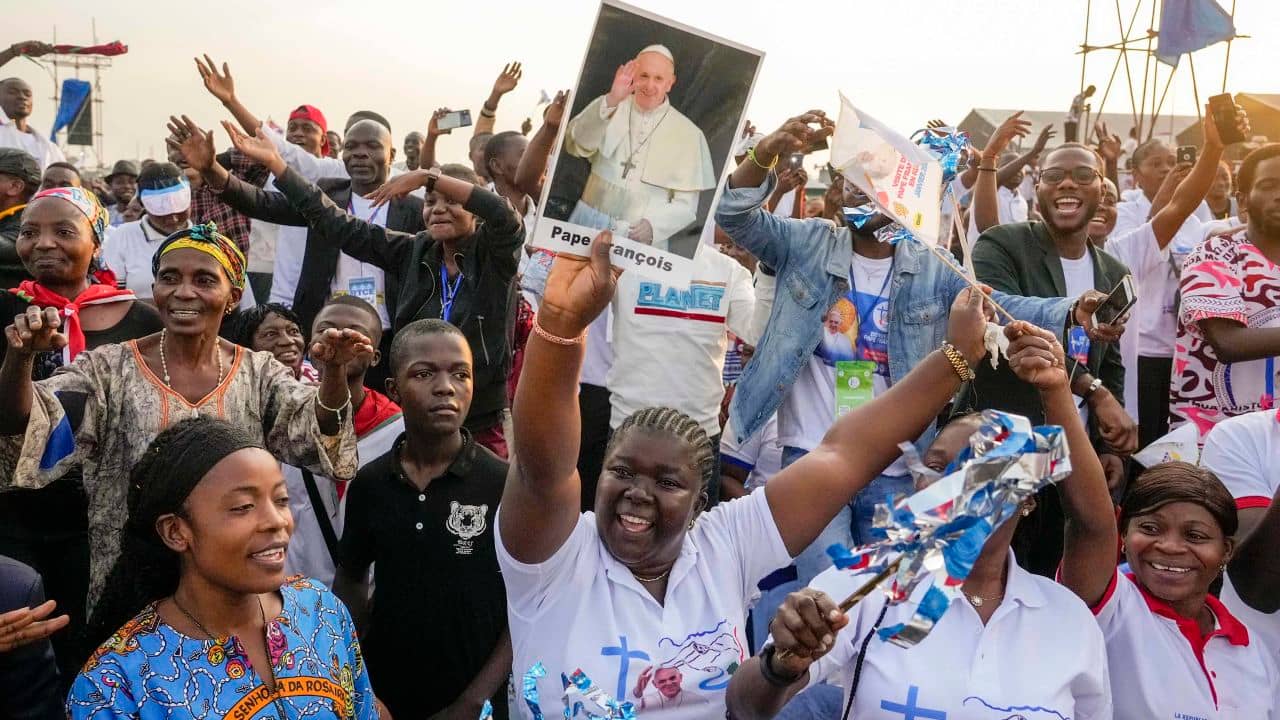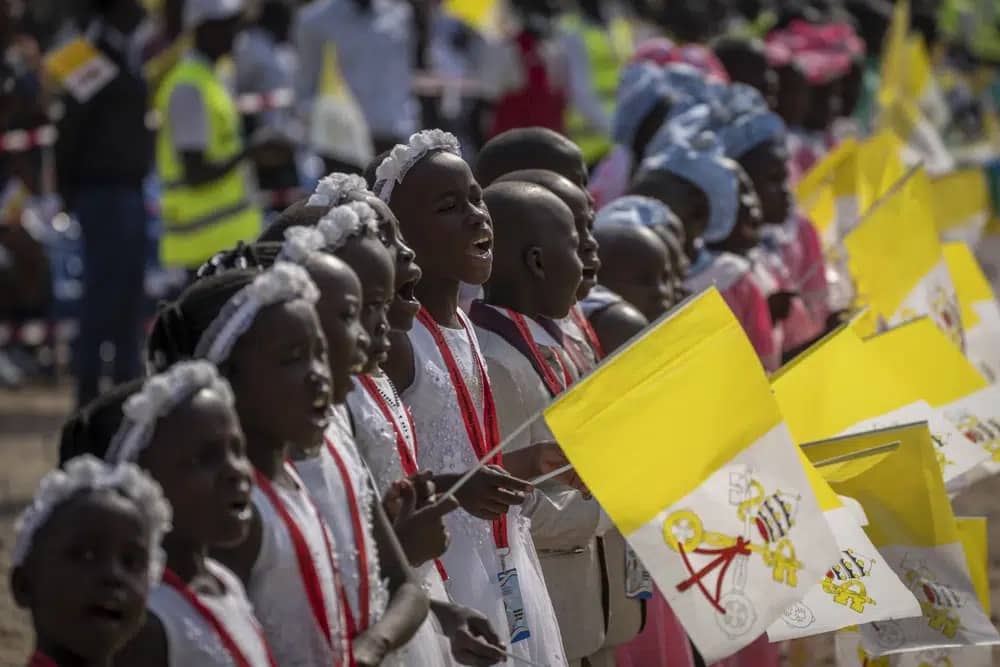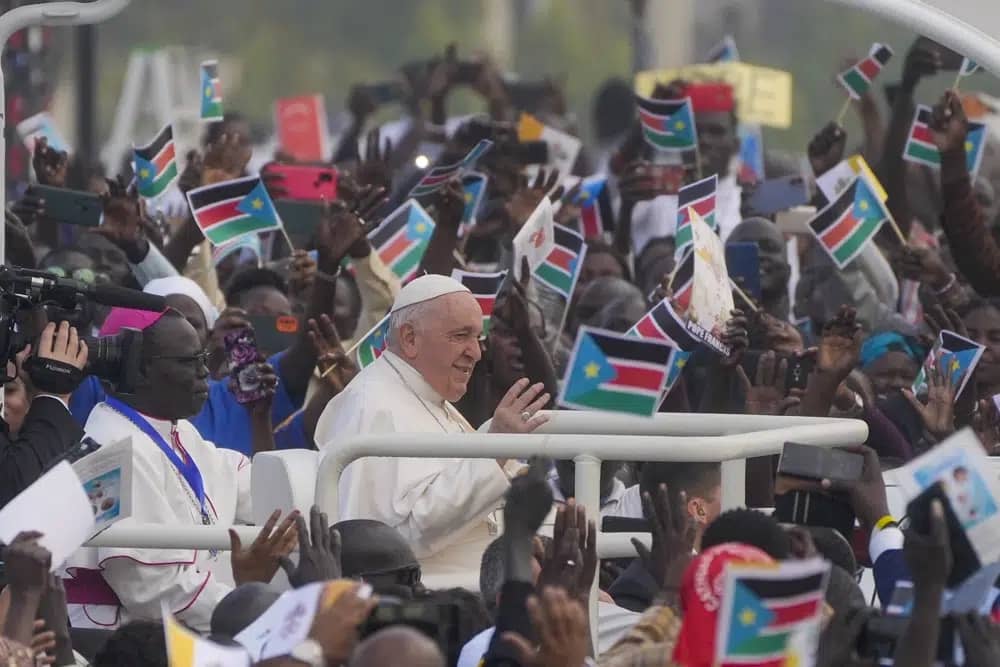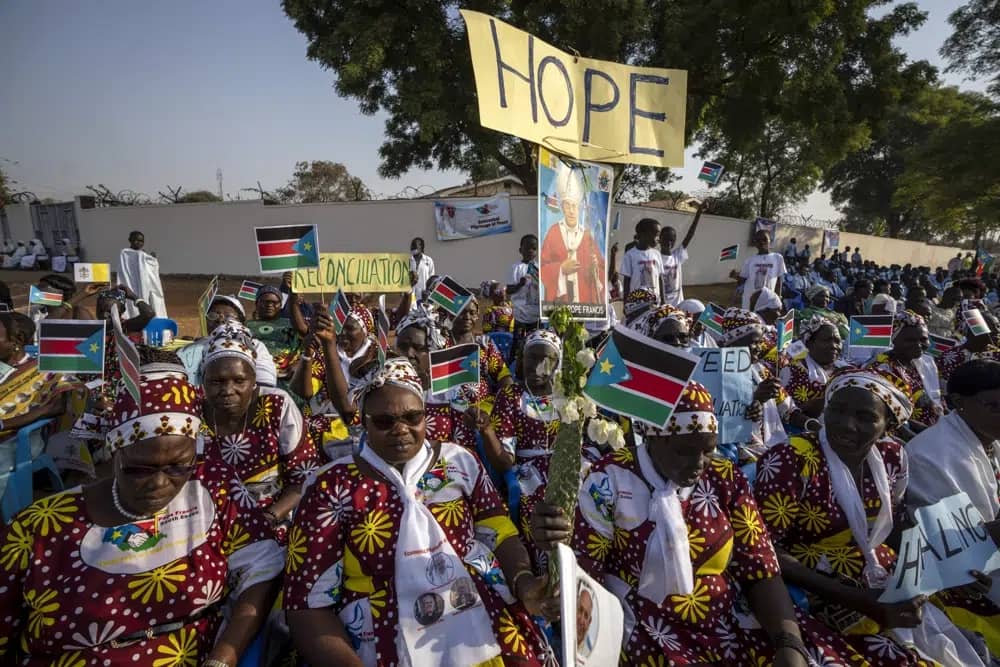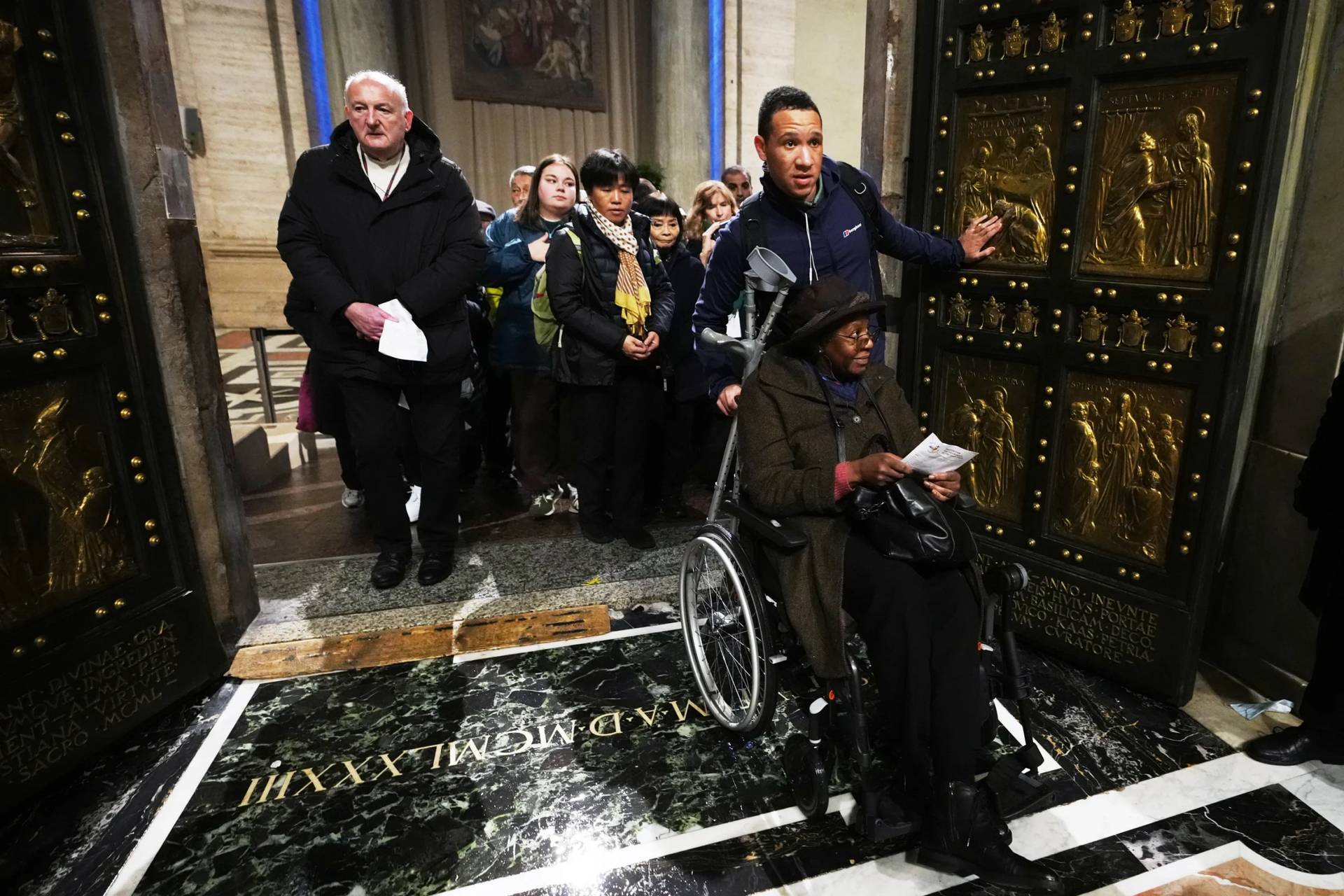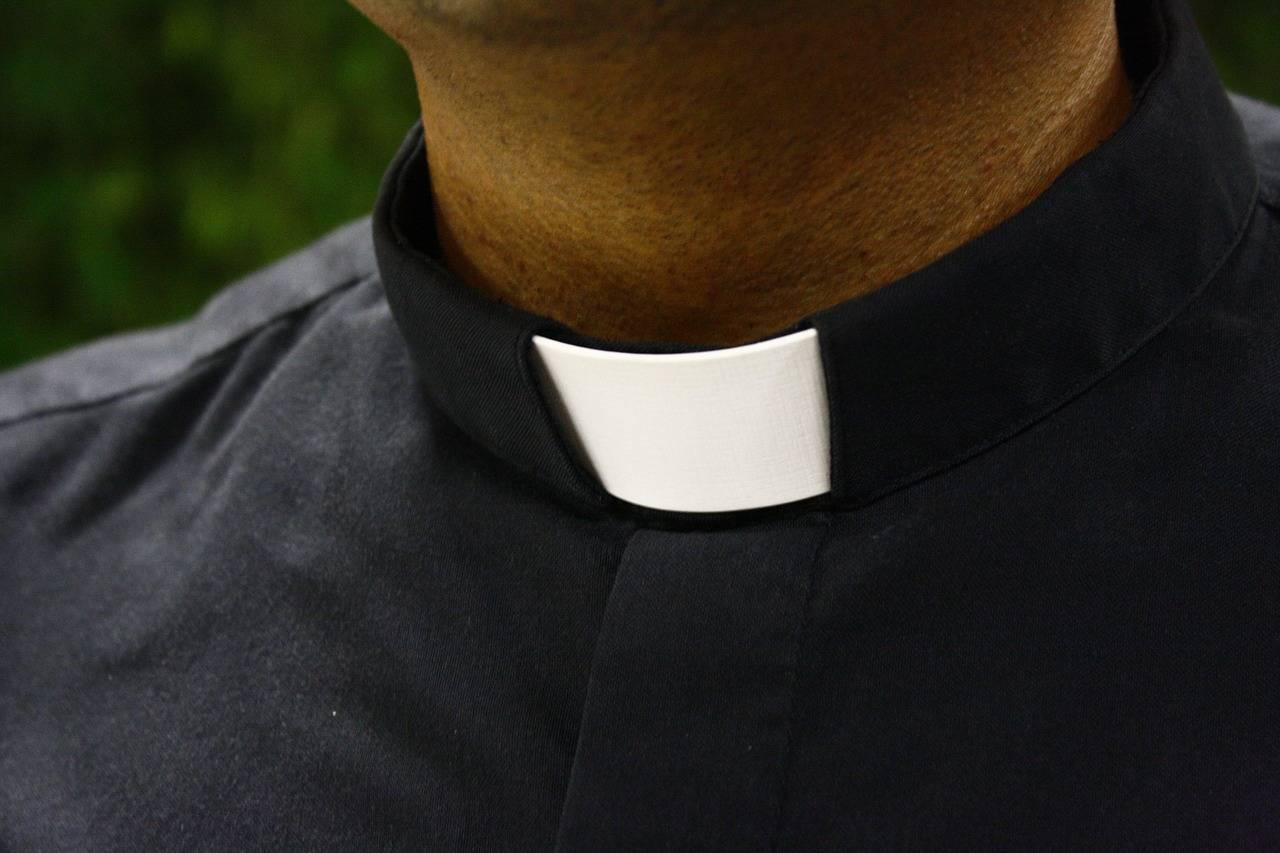YAOUNDÈ, Cameroon – Two influential African Catholic leaders say that when Pope Francis framed the continent’s conflicts in terms of economic colonialism and Western exploitation rather than religion and ethnicity, he put his finger on a deep truth.
Johan Viljoen, Director of the Denis Hurley Peace Institute of the Southern Africa Bishops’ Conference told Crux the pope’s call in the Democratic Republic of Congo for “hands off” Africa’s resources, was “the most relevant message possible for Africa today.”
“In countries all over the continent, we are seeing the toxic cocktail of gas and mineral resources, combined with corrupt political elites and multinational corporations, resulting in ‘armed conflicts’ (where often previously there were none) to drive local communities off their land. This is being called ‘the second scramble for Africa’,” he told Crux.
The reference was to a period in the late 19th and early 20th centuries in which European powers competed to colonize the continent, a period known as the “scramble for Africa.”
“Usually these conflicts are reported in the West as being religious or ethnic,” Viljoen said. “The Holy Father has lucidly, clearly and in no uncertain terms, identified and exposed the true causes of conflict in Africa. It is the voice of prophecy, the voice of God.”
He said the Pontiff’s message “resonates around the continent. From Mali to Mozambique, from Burkina Faso to the Central African Republic, people are saying: ‘That is exactly what is happening here, to us.’ His message is particularly relevant, because since the beginning of the Ukraine war, Western governments have been desperate to secure oil and gas deals, disregarding human rights in the process.”
Archbishop Stephen Brislin of Cape Town, the spokesperson for the Southern African Catholic Bishops’ Conference, said that “Africa is rich in resources and yet, by and large, remains poor and underdeveloped. Economic colonialism contributes to this inequity through the exploitation of those resources by foreign companies and countries with little benefit occurring to the local community.”
The two men said multinational corporations in search of minerals, gas and oil, as well as the greed of the politically connected African elite, have become allies in bleeding the continent of its natural wealth. It’s been worsened by Western governments, they said, who use their leverage to secure deals for the companies registered in their countries or serving their interests.
This new form of colonialism has significant impacts on the lives of ordinary people, the Catholic leaders said.
Brislin told Crux that local communities are “disrupted by the exploitation of resources and are sometimes affected by violence aiming at their displacement or to coerce them into co-operating. Locals, even children, can be coerced into providing labor.”
“I think the impact of such colonization has been enormous on Africa which, if the power balance was more equal, could have benefited greatly in terms of economic development and social progress,” Brislin said.
“In many cases, minerals are exported without any benefit to the local economy,” said Viljoen.
“Two cases in point: Kivu North in DRC and Cabo Delgado in Mozambique – two of the areas with the most mineral wealth, and yet two of the areas ranked lowest in the Human Development Index globally.”
“It’s interesting to note that armed conflicts break out in areas without a history of conflict, immediately after the discovery of mineral wealth. The result for ordinary people is war, death and dispossession of their land,” Viljoen said.
Brislin said for Africa to extricate itself from the dilemma, it needs “strong and ethical leadership” which should, in cooperation with developed nations, exercise more control over multi-nationals and companies from their countries.
“Those in need of Africa’s resources could be legally bound to ensure development of the local community and that the local community/country shares in the benefits,” Brislin said.
Viljoen had a more radical proposal, calling for the overthrow of “the repressive governments that are bleeding the continent dry.”
He called for the building of “a new society, a fair, just and egalitarian society where all people will have access to the necessary means to live a fulfilled life, in which they are able to reach their full potential. A society in which they will be empowered to resist attempts by outsiders to take over what is theirs.”
He cautioned against outside intervention in the effort to build such a society.
“International NGO’s are at best tools of this neo-colonialism, imposing relief and development programs designed in the west, and that do nothing more than foster dependence, while masquerading as ‘humanitarian relief’ or ‘development’,” he said.
“Imagine the irony: ‘We have taken your land and all its minerals and wealth, and have used violence to evict you from your land. We are getting wealthy from your resources. But our government will support NGO’s and development agencies, to give you a bag of rice every month’.”
“Africa will never be able to extricate itself from this neo-colonialism unless Africans do it themselves, on their own terms,” he said.










